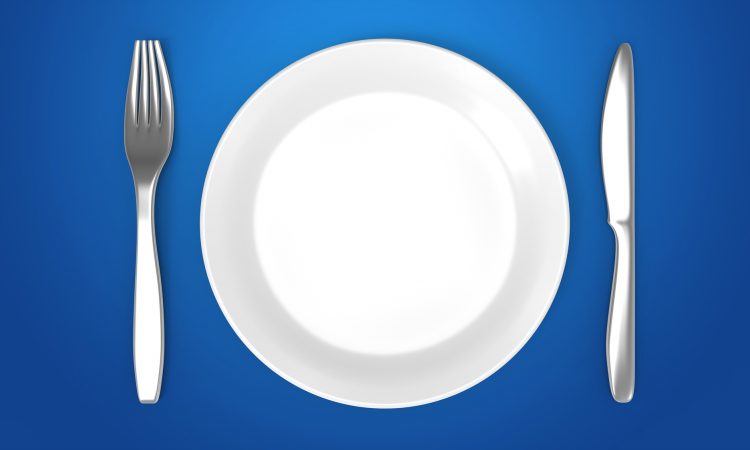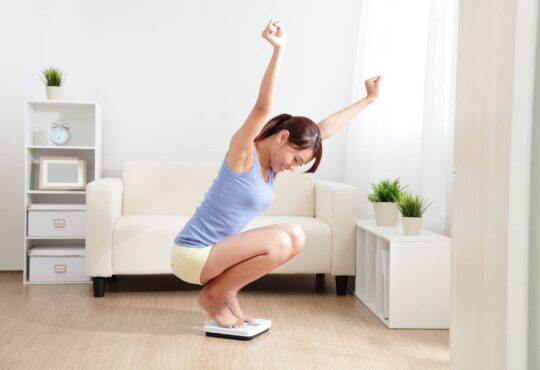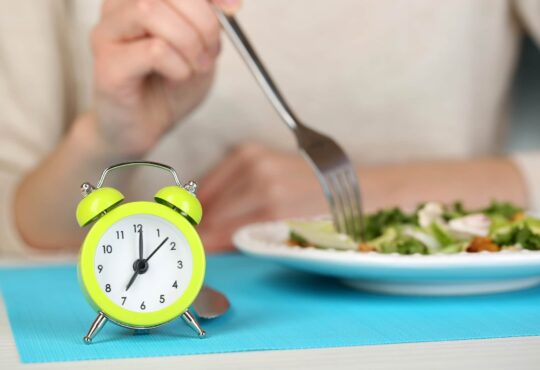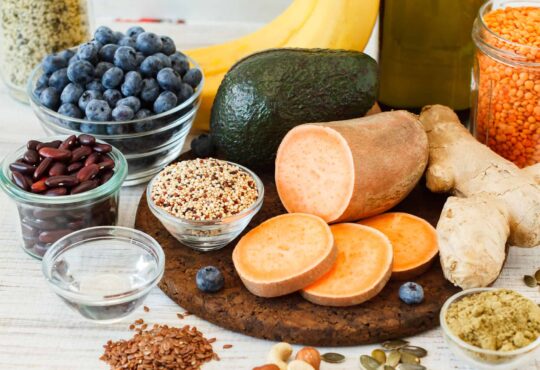
You feel a lot less hunger – that’s why.
Okay, that sounds crazy because it’s so counterintuitive. But it’s true.
And it’s worth explaining because so many “experts” claim intermittent fasting is the same as dieting because they both reduce the number of calories you consume. Therefore, people think fasting is just like dieting – which it’s not.
A Lot of So-Called Experts Want to Confuse You
Both intermittent fasting and dieting cut down on your calories. That’s true.
But they are two opposite experiences.
So, first, let’s define terms.
For me – and for most people, I believe – “dieting” means you cut down on how much you eat at every meal.
The basic idea is, you burn more calories than you take in, so you lose weight.
That’s been the “officially approved” weight-loss model since at least the 70’s.
And we all know how well it works. In the long run, for most people . . . it doesn’t.
Dieting for the Rest of Your Life
That’s also why so few people practice what’s scientifically known as “caloric restriction.” That’s dieting on a permanent basis.
It goes back to 1935, when Clyde McCay published a paper on how rats on CR lived longer than rats allowed to eat as much food as they wished. Other studies have validated this is true of many species.
That makes CR the only scientifically proven way to extend lifespan. It’s the fabled “Fountain of Youth.” And yet almost everybody ignores it.
If a pharmaceutical company sold a drug with those benefits, the demand would be overwhelming. People would pay thousands of dollars for it.
But almost nobody eats the CR way – because it’s so difficult.
So, How’s Fasting Different?
During the period of the fast, you eat nothing. Zero. No calories.
Ideally, just water. (Although many do drink coffee or tea.)
But when you do eat, you eat until you’re full.
Therefore, overall, you feel a lot less hunger.
When You’re Dieting, You NEVER Feel Satisfied
On a diet, you never eat enough calories to feel “full,” right?
You go from small salad to rice cakes to carrot sticks and . . .
It’s frustrating.
And it’s even worse when you follow the advice to eat six small meals a day, so you’re “never” hungry.
Except, six tiny meals a day leave you hungry ALL the time.
Maybe you’re not ravenous, but you’re never satisfied either. You spend lots of time thinking and dreaming about food.
Your stomach has stretch receptors that detect when its full. When you eat only small amounts of food, these stretch receptors are never stretched.
That’s why it takes overwhelming discipline to stay on a diet for more than two or three weeks.
Most people can’t handle it because they’re fighting their own biology, so they inevitably lose. And they unjustifiably feel like failures. But Don’t You Get Hungry While Fasting?
Yes, but there are three differences.
One. You get used to it. The worst hunger pangs come around the time you would normally be eating your next meal. When you just drink some water, they tend to go away.
And it helps to keep your mind occupied with work, exercise or whatever else you enjoy doing instead of eating. It’s easier to just forget about food than to stop your activity every couple of hours to eat a radish.
After you fast around 24 hours, your body begins burning stored fat for fuel. This is good because you want to lose weight. It also reduces your hunger feelings by giving you more energy.
Two. You know that after you finish fasting, you’re going to eat again. And not a tiny, unsatisfying amount – but a real meal, that stretches your stomach stretch receptors.
I believe, emotionally, that’s HUGE.
You’re using will power to fight your biology, but only for a few hours or days. You can handle it because you know you soon will eat to satiety again soon.
When you fast longer than a few days, the fat you burn supplies energy that eliminates a lot of the hunger you’d expect.
When you restrict calories, you’re NEVER satisfied.
That also means it’s much easier to make fasting a permanent part of your lifestyle.
Three. Fasting actually works.
You burn stored fat. And, on average, you eat fewer calories than you burn.
You get the health benefits of CR – and more.
Fasting has Unique Antiaging Features
See, with dieting/CR, you never really give your body the occasional rest from digestion it needs.
By not eating any food at all, fasters let their insulin fall, increasing their insulin sensitivity.
Their blood glucose levels also fall.
The Nobel Prize Winning SecretAbout 16 hours after your last meal, something VITAL to your health begins happening.
When your body has no food to digest, it decides to “clean up.”
The scientific term is autophagy. Yoshinori Ohsumi won the Nobel Prize in 2016 for his work in autophagy.
See, your body is littered with broken proteins, the corpses of dead cells and various other pieces of metabolic garbage. That doesn’t sound healthy, and it’s NOT.
But when your body is busy digesting food, it doesn’t have time and energy to clean up that junk and recycle it.
When you fast, however, it has the opportunity to go into maintenance and repair mode. That is, it does a lot more autophagy.
Therefore, fasting on a regular basis makes your metabolism more efficient. And it may help delay the onset of the symptoms of old age.
Most of the Benefits of Fasting Come After You Begin Eating Again
After your body has used autophagy to clean up, it uses the nourishment you give it after the fast to rebuild, bigger and better.
Dr. Valter Longo, the scientist who’s probably studied fasting the most, found that during a 4-day fast, people’s bodies killed off up to 40% of the cells of their immune systems.
That sounds bad. However, they killed off the old, weak immune system cells.
Upon refeeding with healthy food, their bodies replaced those dead cells with new, young and strong cells.
In effect, the fast and refeed reset their immune systems, making them much more effective at fighting off infectious diseases and destroying cancer cells.
One Big Caution for Fasters
Don’t make fasting an excuse to eat too much food on your refeeding day. Or to eat unhealthy foods.
Two days a week of fasting cannot make up for five days a week of pigging out on donuts, pizza and beer.
Yes, eat until you’re satisfied. That is, COMFORTABLY full – NOT stuffed to your eyebrows.
And eat whole, healthy foods.
Do NOT let the “experts” confuse you.
Fasting is a great way to lose weight and to improve your health although it takes some determination, it’s far, far easier than dieting.







